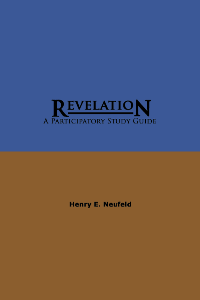Yet Again Hebrews Authorship
 In September of 2013 I published a book titled The Authorship of Hebrews: The Case for Paul by David Alan Black. It has been interesting to read material on this topic since. I would note that while I believe Dave’s case is well presented, and was convinced by it to give more room to the idea of Pauline authorship, I have not been convinced to abandon my agnosticism on the authorship of Hebrews.
In September of 2013 I published a book titled The Authorship of Hebrews: The Case for Paul by David Alan Black. It has been interesting to read material on this topic since. I would note that while I believe Dave’s case is well presented, and was convinced by it to give more room to the idea of Pauline authorship, I have not been convinced to abandon my agnosticism on the authorship of Hebrews.
Today my attention was drawn to two more posts. The first is by Dave Black, which I copied to the Topical Line Drives site to create a permanent link (Dave’s blog doesn’t support this). It’s a short comment, but makes clear Dave’s view that Hebrews is not so anonymous as one might think.
The second post is by Kyle O’Neill (HT: Thomas Hudgins), who favors Apollos or Aquilla and Priscilla.
There is a broad consensus among scholars that Paul did not write the book of Hebrews. There is no similar consensus about who did write the book. There’s an easy explanation, however, for the difference between these positions. It’s simply the view of the authors in question of the external evidence. Is the testimony of the early church fathers reliable on matters of authorship? While there are some disagreements about precisely what each church father said (Dave Black provides his own translations of many of these references in his book), in general if one is prepared to accept the testimony of the early church fathers, one is likely to accept Paul as the author of Hebrews.
On the other hand, if one favors internal evidence over this external testimony, one likely will not favor Paul. Note that I do not mean here a simple differentiation between how one favors internal over external evidence, such as one might have in textual criticism. In this case, we’re looking at specific testimony with specific issues. How much could each witness have known? To what extent are they reporting hearsay? To what extent might they be trying to shore up the claim of Hebrews to be scripture? So one can have a general position favoring external evidence on many other topics, but nonetheless not have the same emphasis with regard to authorship.
In my view, if we did not have the testimony of the early church fathers, nobody (or almost nobody) would assign Hebrews to Paul based on the internal evidence. But I also believe that if you don’t accept the testimony of the early church fathers on this point, there is no basis to claim any particular author for the book. The problem with determining authorship based on internal evidence is that you must have a body of material with known authorship with which to compare the book. Of the proposed authors of the book of Hebrews, only three have a significant body of written material, Luke, Paul, and Clement. For others, such as Apollos or Aquilla and Priscilla, we have no written material, and precious little biographical information. It is always possible that one of these many candidates wrote the book, but the evidence just isn’t there.
That’s why, having decided that there is enough internal evidence in the book to question Paul’s authorship, I do not propose an alternative. I don’t know who wrote it. I realize there are answers to the difficulties with Pauline authorship, but in my view it seems that there’s just a bit too much to explain away. It could be Paul, but then again, not so much.
It’s interesting how strong the consensus against Pauline authorship has become. I would think that there would be a greater body of argument in favor of the testimony of the early church fathers. A very slight swing in favor of that testimony would probably shake the consensus quite substantially.

